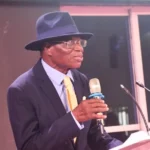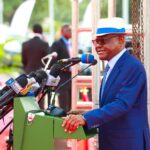Mineral promotion: Agency conducts mega mineral clinic in FCT
By Vivian Emoni The Nigerian Geological Survey Agency (NGSA) has concluded its mega mineral clinic to ensure that goals scored in area of geosciences data generation are digested by investors. The Director-General of the agency, Dr Abdulrazaq Garba, said this on Saturday in Abuja, at an occasion of itsContinue Reading











